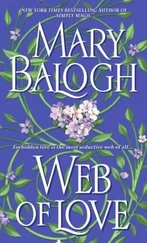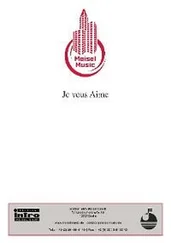In 1968 Gallimard published Amour, colère, et folie , but right before its distribution an incident occurred that changed the fate of the book as well as that of its author. Haiti’s ambassador to France apparently saw an advance copy and expressed concerns for the family’s safety. This episode made Marie Vieux-Chauvet cancel the book’s distribution and convinced her to turn her trip to New York into a permanent exile.
Marie Vieux-Chauvet’s daughter Régine Charlier confessed that many of her own questions about this story remain unanswered. The moral, social, and political complications of the failed launch of the author’s most important novel, however compelling, reinforce but should not overshadow or distort her true legacy: the work itself. Love, Anger, Madness offers a literary means of articulating the challenges Haiti’s history poses to its citizens and to the rest of the world, an articulation that is possible only because her protagonists are complex thinking subjects and not simply romantic heroes. When these subjects set aside racial, social, political, and religious affiliation (be it voodoo or Catholicism), what is left is pitiless self-investigation meant as a model for an investigation of the world. Of course, a sharpened mind can make for a raw heart. Then again, if the human being is but “an animal hemmed in by a narrow conscience” whose lot is to suffer, perhaps such lucidity is all we really need.
– ROSE-MYRIAM RÉJOUIS, BROOKLYN, 2009
Ten years ago, Régine Charlier, Marie Chauvet’s eldest daughter, wrote to me and Val about her desire to publish a translation of Amour, Colère, et Folie . Her letter came from Haiti and I remember being mesmerized by the distance between what the stamps commemorated (Renaissance art) and what was going on in Haiti (continual disappointment). Edwidge Danticat had given her our names. We wrote back right away, explaining that we had to decline because we had just returned to our Ph.D. programs and needed to focus on passing exams and writing our dissertations. We are moved that we were given a second chance.
A few words about our process: When asked how Val and I divide the labor of translating, I often respond: we take turns. When I defend the original, he defends the translation. When he defends the translation, I defend the original. This is still my best answer.-R.M.R.
TRANSLATORS’ ACKNOWLEDGMENTS
We would like to express our gratitude to the following people and institutions for their support of this translation: Judy Sternlight, Edwidge Danticat, Régine Charlier, Thomas Colchie, Thomas Spear, Holly Webber, Michael Dash, Joan Dayan, Ronnie Scharfman, Carolyn Vega, Jeanne Garane, Emmanuelle Ertel, Etienne Dobenesque, Alyson Waters, Patrick Erouart-Siad, Margo Jefferson, Jonathan Veitch, Neil Gordon, Noah Eisenberg, Carolyn Berman, Laura Frost, Lea Beresford, Vincent La Scala, Ann Snitow, Ferentz Lafargue, Elaine Savory, John Flicker, Jessica Waters, Exit Art, and the Simon R. Guggenheim Foundation.
WORKS BY MARIE VIEUX-CHAUVET PUBLISHED UNDER THE NAME MARIE CHAUVET
NOVELS
Fille d’Haïti . Paris: Fasquelle, 1954.
La Danse sur le volcan . Paris: Plon, 1957; Paris/Léchelle: Maisonneuve & Larose/Emina Soleil, 2004 (republished with a preface by Catherine Hermary-Vieille).
Fonds des nègres . Port-au-Prince: Henri Deschamps, 1960.
Amour, colère, et folie . Paris: Gallimard, 1968; Paris/Léchelle: Maisonneuve & Larose/Emina Soleil, 2005.
Les Rapaces . Port-au-Prince: Henri Deschamps, 1986.
IN TRANSLATION
Dance on the Volcano (La Danse sur le volcan) . Translated by Salvator Attanasio. New York: W Sloan Associates, 1959.
WORKS ABOUT VIEUX-CHAUVET
Guyonneau, Christine H. “Francophone Women Writers from Sub-Saharan Africa and Its Diaspora: A Preliminary Bibliography.” Callaloo , No. 27 (Spring 1986), pp. 404-31 [exhaustive list of contemporary reviews and of literary criticism on the work published in or before 1984 (see “Chauvet”)].
“Marie Chauvet.” http://www.lehman.cuny.edu/ile.en.ile/paroles/chauvet.html [accessed January 2009].
Quietly, like a shadow, I watch this drama unfold scene by scene. I am the lucid one here, the dangerous one, and nobody suspects. An old maid! No husband. Doesn’t know love. Hasn’t even lived, really. They’re wrong. In any case, I’m savoring my revenge in silence. Silence is mine, vengeance is mine. I know into whose arms Annette will throw herself, and under no circumstances do I plan to open the eyes of our sister Félicia. She is too enraptured and carries the three-month-old fetus in her womb with too much pride. If she was smart enough to find herself a husband, I want her to be smart enough to keep him. She has too much confidence-in herself, in everyone. Her serenity exasperates me. She smiles while sewing shirts for the son she’s expecting, because of course it must be a son! And Annette will be the godmother, I bet…
I rest my elbows on the bedroom windowsill, and watch: standing in broad daylight, Annette offers Jean Luze the freshness of her twenty-two years. Their backs to Félicia, they claim each other without the slightest gesture. Desire bursting in their eyes. Jean Luze struggles, but there is no way out.
I am thirty-nine years old and still a virgin. The unenviable fate of most women in small Haitian towns. Is it like that everywhere? Are there towns in the world like this one, half mired in ancestral habits, people spying on each other? My town! My land! as they proudly call this dreary graveyard, where you see few men besides the doctor, the pharmacist, the priest, the district commandant, the mayor, the prefect, all of them newly appointed to their posts, all of them such typical “coast people” that it’s nauseating. Suitors are exotic birds, since parents here always dream of sending their sons away to Port-au-Prince or abroad to make learned men of them. One of them came back to us in the person of Dr. Audier, who studied in Paris and in whom I still search in vain for something superhuman…
I was born in 1900, a time when prejudice was at its height in this little region. Three groups emerged, isolated from each other like enemies: the “aristocrats” to whom we belonged, the petty bourgeois, and the common people. Tugged at by the delicate ambiguity of my situation, I suffered from an early age because of the dark color of my skin. The mahogany color I had inherited from some great-great-grandmother went off like a small bomb in the tight circle of whites and white-mulattoes with whom my parents socialized. But that is the past, and I don’t care to return to what is no more, at least not for now…
Father Paul says I have poisoned my mind with education. The truth is that my wits were asleep and I have stirred them-with this journal. I have discovered in myself unsuspected talents. I believe I can write. I believe I can think. I have become arrogant. I have become self-conscious. To reduce my inner life to what the eye can see, that’s my goal. A noble task! Will I succeed? To speak of myself is easy. All I have to do is lie a lot while convincing myself that I’m really putting my finger on it. I will attempt sincerity: solitude has made me bitter; I am like a fruit fallen before ripening, rotting under the tree unnoticed. Hurrah for Annette! After Justin Rollier, the poet who died of tuberculosis, there was Bob the Syrian; after Bob now Jean, brother-in-law to us both-and she is not yet twenty-three. Our little town of X is emancipating itself. It would seem we have been contaminated by what they call civilization.
Читать дальше












